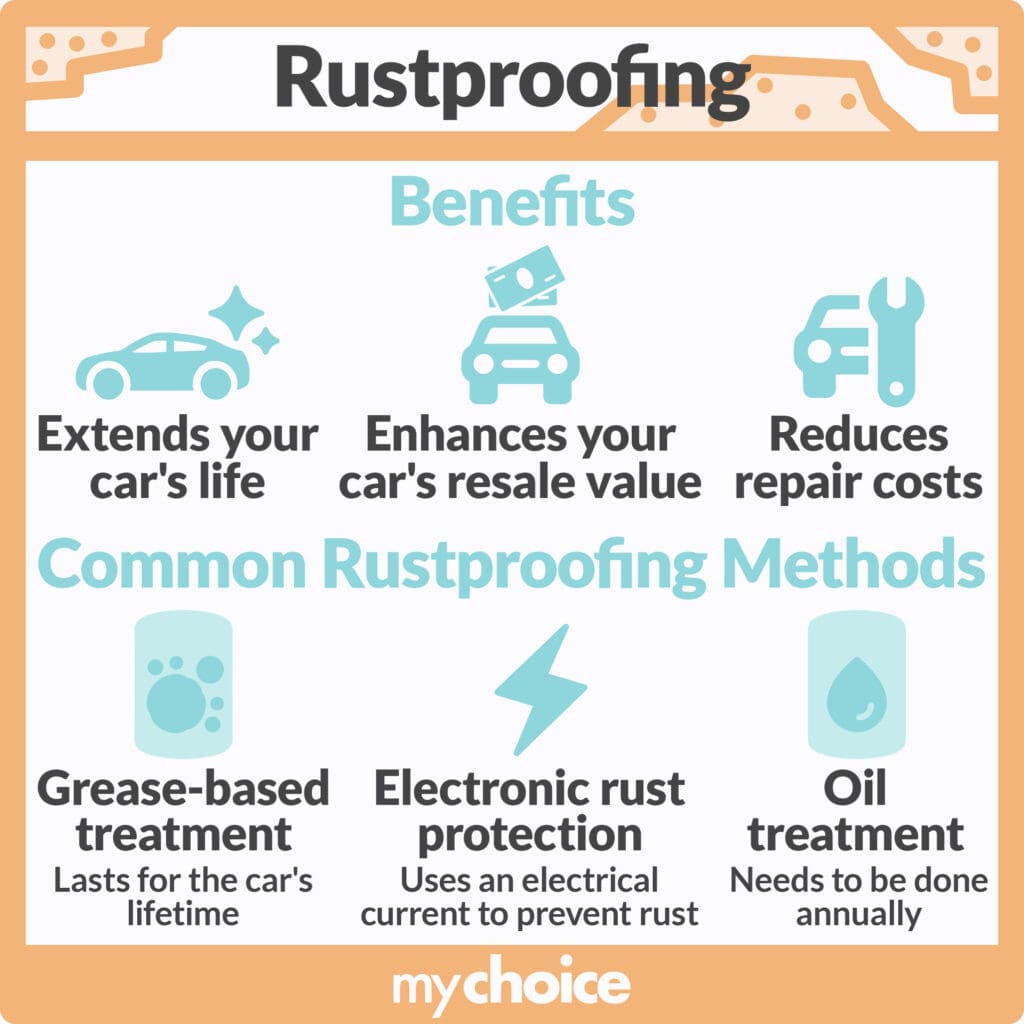If you live in Canada, where harsh winters and freezing rain are common occurrences, rustproofing is an essential part of maintaining your vehicle. But what exactly is rustproofing and can you do it at home?
Whether you’re a seasoned driver or new car owner, this guide to rustproofing can help you prevent rust and keep your vehicle in tip-top shape even in the harshest weather conditions.
How Does Rustproofing Work?
Rustproofing is a procedure done to create a barrier between your car and rust-causing elements like water and oxygen. Given that cars are mostly made of iron and steel, they’re extremely susceptible to rust, which forms when iron interacts with water and oxygen. This means that constant exposure to rain, snow, and mud can lead to rust buildup.
Why You Want to Avoid Rust
While cars have paint and protective coatings to protect them from direct exposure to air and water, scratches, dents, and chips in the paint can leave the metal underneath susceptible to rusting. When rust starts to form, it can spread quite quickly. And if left untreated, rust can cause significant cosmetic and structural damage to your vehicle. It weakens metal, makes it brittle and causes cracking and breakage. It can also destroy electrical components and, eventually, make a car unsafe to drive.
How Much Does Rustproofing Cost?
Rustproofing costs anywhere between $130 to $170. But the rate can vary significantly depending on the type and size of the vehicle and the method of rustproofing. Electronic rustproofing typically costs more than chemical methods.
Is Rustproofing Worth It?
As mentioned, rust can wreak havoc on your car and set you back hundreds of dollars to repair. Canadian cars are especially susceptible to rusting, not only because of the weather, but due to the use of road salt. Statistics Canada estimates that over 5 million tonnes of road salt is used each winter to keep snow and ice from accumulating on the roads.
That may be great for keeping drivers safe in the winter, but it’s not good for preventing rust. Road salt accelerates the corrosion process, leaving many Canadian cars at risk of rust damage.
So, is rustproofing worth it? Many car owners seem to think so — especially if you plan on keeping your car for a long time. Rustproofing will:
- Act as a barrier between harmful elements and the metal of your car. Think of it as an insurance policy against future repair costs
- Save you money long-term, as you’ll spend less on repairs and maintain your car well enough that it doesn’t depreciate significantly
- Ensure your car not only looks good and is free of cosmetic damage, but is safe and roadworthy as well

Rustproofing Treatment Options
You have several treatment options for rustproofing your car, including:
How Often Should You Rustproof Your Car?
The frequency at which you should be rustproofing your car depends on the type of treatment you choose. Grease-based treatments last the longest and don’t need to be touched up for at least five years. If you go for oil-based treatments, you have to rustproof every one to two years.
DIY Tips and Techniques for Rustproofing Your Car
When it comes to rustproofing, it’s best to leave things to the professionals. Rustproofing is a time-consuming and labor-intensive process that is easy to mess up. If done incorrectly, DIY rustproofing could harm your vehicle more than it would help it.
So, what can you do at home to protect your car from rust without really getting into the nitty-gritty of rustproofing? Here are some tips:
Key Advice From My Choice
- For those in Canada, rustproofing is one of the essential steps to preparing your car for winter.
- Though it may seem expensive, leave rustproofing to the professionals — you don’t want to do more harm than good.
- Rustproofing doesn’t impact auto insurance rates, but it can keep expenses at a minimum by reducing repairs and maintenance costs.
- Some cars are better for winter than others. Check out our guide to the best cars for Canadian winters.








